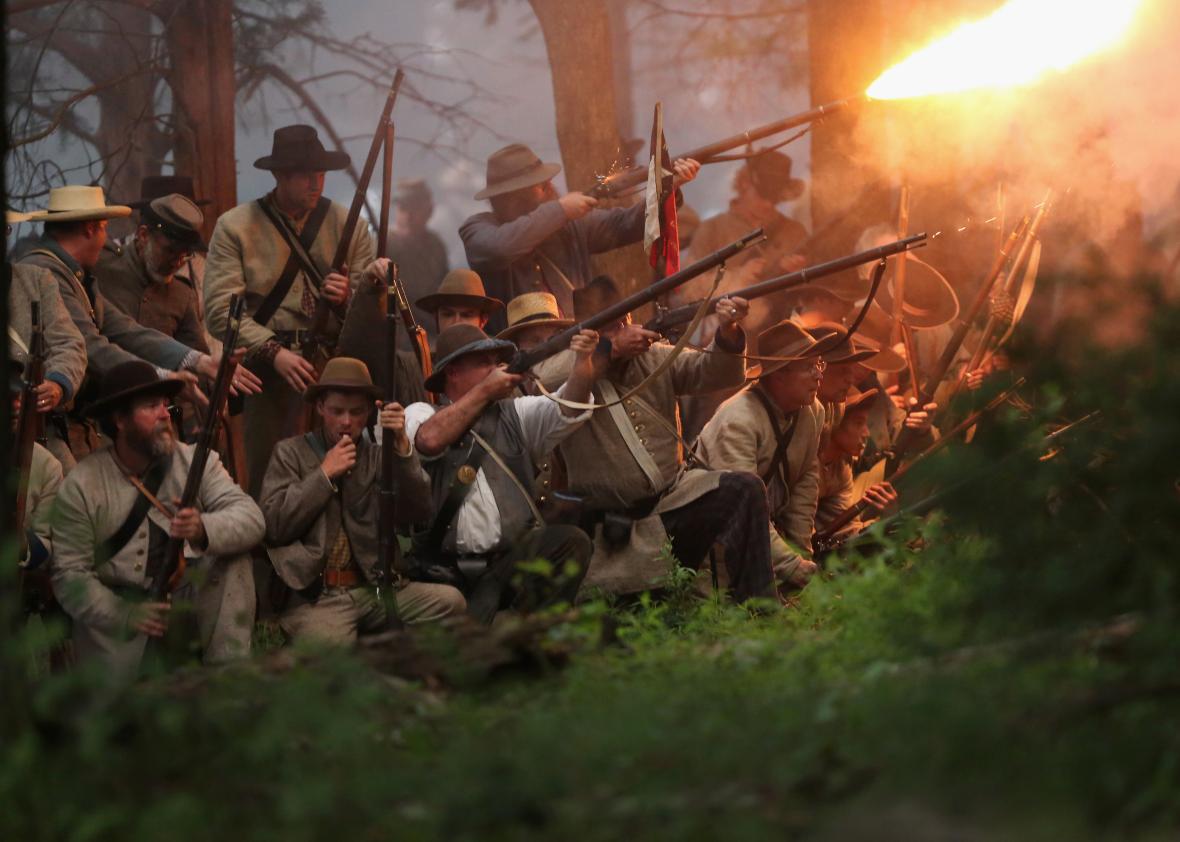This question originally appeared on Quora, the knowledge-sharing network where compelling questions are answered by people with unique insights. You can follow Quora on Twitter, Facebook, and Google Plus.
Answer by Joseph Boyle:
We had many chances to avoid the Civil War, which is not to exclude the possibility of a (likely smaller and shorter) war restricted to the Deep South, either at that time or another time.
First, it was united American independence that set up the sectional conflict of equals. Britain was the greatest anti-slavery force of the time, and eliminating slavery needed to be a joint effort of Britain and the North, as suppression of the African slave trade had been since 1808. If both had been united with the South or both separate from the South, they would have approached anti-slavery in unison, pressing it only when they could apply the overwhelming force of both, making resistance impossible.
Second, the first wave of American abolition succeeded in half of the states, not three-fourths. Abolition never had a chance in the Deep South, but Virginia came close.
Next, it was mismanagement of the U.S.’s Pacific expansion that nearly led to war. The 1821 Adams-Onís Treaty unnecessarily renounced claim to East Texas, where American settlers were already arriving, leading to the Texas Revolution and Mexican-American War. The 1818 U.S.-U.K. negotiators were agreed on how to divide Oregon Country except for western Washington, but not getting this on paper allowed false hopes for BC to develop, which James Polk pandered to in the 1844 campaign, then sold out to free his hands to make war on Mexico for Southern expansion, angering Northern Democrats enough to pass the Wilmot Proviso denying any spoils to the South, leading to a four-year deadlock, after which the South was ready to go to war for the Southern California and New Mexico it felt it was owed. The Compromise of 1850 avoided war for the moment but left the South on edge and inflamed against Northern abolitionism.
The politics of the following decade seemed designed to convert the conflict to all-or-nothing. Squatter sovereignty led straight to Bleeding Kansas. The Kansas-Nebraska Act removed the time-honored 36°30’ divider.* The Dred Scott decision put the North in fear of slavery expanding north, and then the John Brown raid put the South in fear of abolition and race war expanding south.
The 1860 election broke American politics, but the Upper South still refused to join the Deep South in secession. Virginia was less secessionist than Kentucky, and Western interests detesting Eastern planters were growing in power and close to taking control of the legislature, where they would have stripped slavery of tax and legal advantages, accelerating its decline and emigration of pro-slavery elements farther South. After several votes against secession, the Sumter crisis and call for troops just before the state convention disbanded led to a surprise snap secession, next joined by Tennessee, North Carolina, and Arkansas, doubling the Confederate white population, bringing it to the gates of Washington, and handing it the most skilled officers. Any delay or secrecy in the Sumter crisis and response could have averted this until the Kentucky neutrality convention sealed Virginian neutrality. Naval invasion of the Deep South would have followed—this was anyway the only early success of the early war, taking the Confederacy’s largest city of New Orleans. Without being bogged down in Virginia, Northern forces would also have taken Charleston in the first year.
*Correction, July 26, 2016: Due to an editing error, this post misstated that the Missouri Compromise removed the 36°30’ divider. The Missouri Compromise created the divider; the Kansas-Nebraska Act effectively removed it.
Was there any chance of avoiding the American Civil War? originally appeared on Quora. More questions on Quora:
